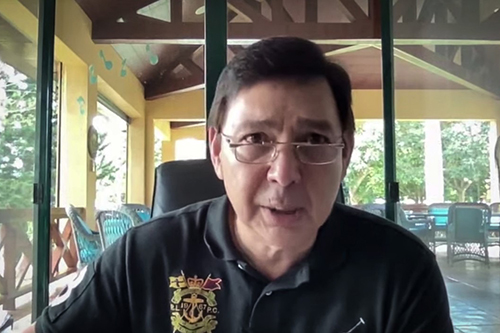During the hybrid marathon session on the proposed 2022 budget of the Department of Information and Communications Technology (DICT) on Wednesday, Nov. 17, Sen. Ralph Recto told officials of the agency to invest in the last mile in order to provide more people access to ICT services.

Recto said instead of replicating or doing redundant investments in areas that already have Internet coverage, the department should concentrate on underserved and unserved areas. He said the major role of DICT should be to assist telecommunication companies, instead of competing with them.
“I asked what is their business model and they said they do not plan to compete but now they are saying OK, we can offer cheaper Internet services, well and good; and that they can provide services that even the private telcos will buy from them, well and good; but then they could not tell us if there will be an improvement in the Internet penetration rate,” Recto said.
According to the DICT, Internet penetration rate in the country is at 60 percent, while Recto said based on international publications, the country only has 44 percent.
Sen. Ronald “Bato” Dela Rosa, meanwhile, vowed to make sure that the DICT will fulfill its promise to provide adequate and efficient service to all Internet users in the country, currently estimated at 89 million, within the next three years, or by January 2025.
Dela Rosa, chairman of the Senate Finance Subcommittee C, is the sponsor of the proposed budget of the DICT amounting to P10,565,161,000.
During the interpellation made by Sen. Franklin Drilon, whose second term at the Senate is set to end in 2022, it was revealed that currently, there are 25,213 macro cell towers and around 127,000 small towers existing in the country, translating to around 3,500 users simultaneously using each of the macro cell tower.
The National Telecommunications Commission (NTC) added that the ideal number of Internet users per cell tower is 500, and to achieve the ideal ratio, there is a need for around 150,000 additional cell towers aside from the existing 25,213 to cater to all 89 million Filipino Internet users.
“The immediate plan, Mr. President, is to increase the number of micro towers since mas mabilis itong gawin para ma-compensate ‘yung lacking numbers ng malalaking towers, ng macro towers… With the cooperation of the telcos [telecommunications companies], maybe within three years, ma-achieve natin ‘yang [ideal] ratio,” Dela Rosa said.
He added, “We have more favorable conditions right now kaya masasabi natin na medyo madali o mabilis ‘yung pag-construct ng mga tower… Dati-rati, imbes na 200 days ‘yung processing ng permits, ngayon ay 15 to 16 days na lang, and from 30 permits na kinakailangan noon, ngayon ay 13 na lang. Kaya mabilis na po… the situation is kinder to us.”
Dela Rosa was referring to Section 4 of the Bayanihan 2 law crafted by Congress last year to simplify the processing of permits for the construction of cell towers in the country in response to the grievance of telcos.
Drilon emphasized that DICT should make sure that they will follow through with their commitment and stick to their timetable.
“It’s good to set targets because three years from now, I am sure si Senator [Francis] Tolentino, maniningil po ‘yan kung ‘yan po ang inyong pangako na pagdating ng 2025, you will be able to service 89 million Internet users because of increases in the micro towers. You know, I’m sure that the entire nation will clap their hands,” Drilon said.
Dela Rosa responded, “After three years, Mr. President, not only Senator Tolentino will be around, yours truly will still be around. And kung su-swertehin, mare-re-elect po, so hindi lang si Senator Tolentino ang maniningil sa kanila, ako mismo.“




